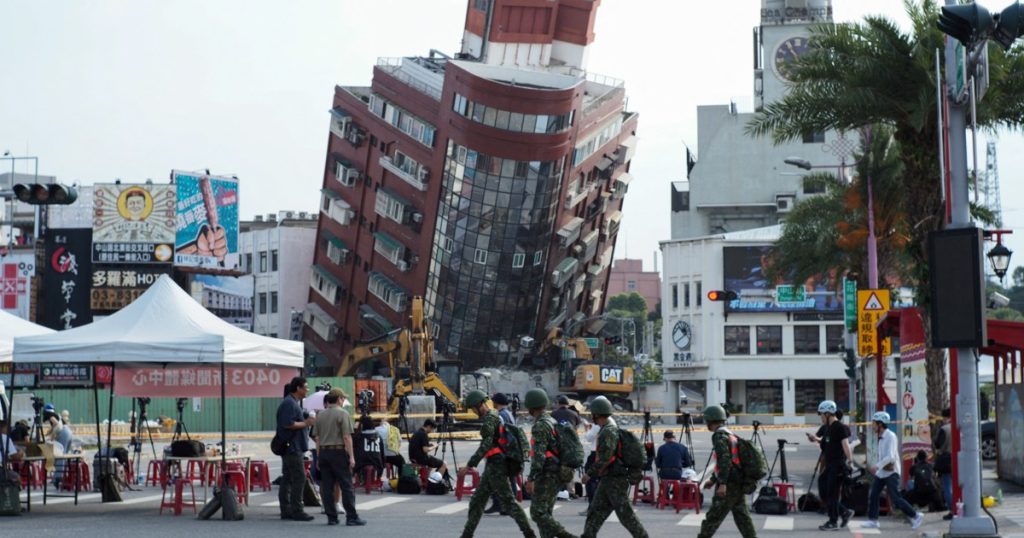Six people who were trapped in a mining area were rescued by helicopter on Thursday morning. The rescue efforts were part of a response to a powerful earthquake in Taiwan on Wednesday, the strongest to hit the country since 1999. The earthquake caused damage and disruptions in the Hualien area, including to a resort in Taroko National Park where 26 out of 50 hotel workers were found by authorities. Rail service to the area was restored on Thursday, as Taiwan’s fire department continued search and rescue operations.
Taiwan has made significant improvements in earthquake preparedness and response since the devastating earthquake in 1999, according to experts. Measures such as strict enforcement of building codes and organized evacuation plans have helped reduce casualties during earthquakes of similar strength compared to other countries. The top-down approach of government regulations and the bottom-up approach of individual preparedness have been credited with the successful response to disasters in Taiwan. These strategies can serve as a model for disaster management in other countries, including the United States, where earthquake preparedness in places like California could be improved.
Daniel Aldrich, director of the Resilience Studies Program at Northeastern University in Boston, highlighted the importance of proactive disaster planning in preventing casualties during natural disasters. He emphasized that a country’s response to a disaster is influenced by its preparedness measures before the event occurs. The lessons learned from Taiwan’s earthquake response can be applied globally to improve disaster management strategies. Aldrich suggested that countries should focus on both government-led initiatives and community-based preparedness to enhance their resilience to natural disasters.
The swift response to the earthquake in Taiwan, including search and rescue operations and restoration of essential services like rail transport, demonstrates the effectiveness of coordinated disaster management efforts. The use of technology such as drones to locate and rescue stranded individuals has been crucial in ensuring the safety of those affected by the earthquake. The successful rescue of the trapped mining workers and hotel workers in Taroko National Park is a testament to the importance of timely and efficient response during natural disasters. Authorities in Taiwan are continuing their efforts to assess and address the impact of the earthquake on affected communities.
As Asia Digital Editor for NBC News, Jennifer Jett has been closely monitoring the developments following the earthquake in Taiwan. Reports from Reuters and local authorities have provided updates on the search and rescue operations and restoration of services in the affected areas. The collaboration between media outlets and government agencies in providing timely information to the public is essential during times of crisis. The coverage of the earthquake in Taiwan serves as a reminder of the importance of preparedness and response measures in mitigating the impact of natural disasters on communities. By learning from past experiences and implementing effective disaster management strategies, countries can enhance their resilience to future events.


